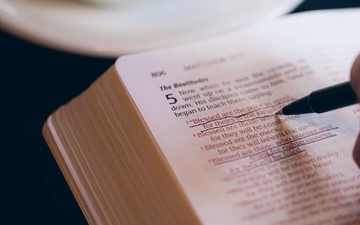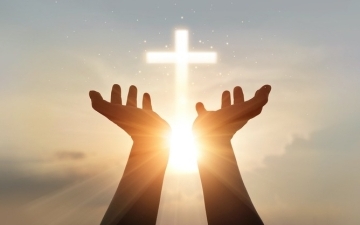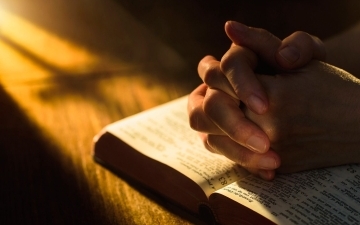What is the significance of the Passover in the Old Testament?
The Passover is one of the most important and enduring celebrations in the Old Testament, holding deep significance for the Jewish people and playing a crucial role in the biblical narrative. It commemorates the deliverance of the Israelites from slavery in Egypt, an event that marks the beginning of their journey toward becoming a free nation under God. Found primarily in the book of Exodus, the Passover is rich with symbolism and meaning that extends beyond its historical context, pointing to themes of salvation, covenant, and God’s redemptive power. Let’s explore the origins of the Passover, its key elements, and its spiritual significance in the Old Testament.
Origins of the Passover: The Exodus Story
The story of the Passover begins in Exodus 12, during a time when the Israelites were enslaved in Egypt. After enduring years of oppression, God sent Moses to deliver His people and demanded that Pharaoh release them from bondage. Pharaoh repeatedly refused, despite a series of plagues that God inflicted upon Egypt as judgments for their harsh treatment of the Israelites. The final and most devastating of these plagues was the death of the firstborn sons throughout Egypt.
To protect the Israelites from this plague, God provided specific instructions for the Passover, which became a night of deliverance for His people. Here’s a summary of the key aspects of that first Passover:
- The Sacrificial Lamb: Each Israelite household was instructed to take an unblemished lamb, kill it, and apply its blood to the doorposts and lintels of their homes (Exodus 12:5-7). The blood on the doorposts served as a sign that the household belonged to God, and it would protect them from the angel of death.
- The Passover Meal: The Israelites were to roast the lamb and eat it along with unleavened bread and bitter herbs (Exodus 12:8). They were to eat the meal quickly, dressed for travel, symbolizing their readiness to leave Egypt at a moment’s notice.
- The Passing Over: That night, God passed through Egypt, striking down the firstborn of every household that did not have the sign of the blood. But when He saw the blood on the doorframes of the Israelite homes, He “passed over” them, sparing them from the judgment (Exodus 12:12-13).
The event led to Pharaoh finally releasing the Israelites, allowing them to leave Egypt and begin their journey toward the Promised Land. The Passover, then, marks the moment when God delivered His people from slavery and demonstrated His power and faithfulness.
Key Elements of the Passover and Their Significance
The Passover is filled with symbols that carry deep spiritual meaning, many of which point to God’s character and His plan for redemption. Let’s look at some of these key elements and their significance:
1. The Sacrificial Lamb
The Passover lamb is central to the celebration and serves as a powerful symbol of substitution and atonement. The lamb’s blood, applied to the doorposts, represented a life given in place of those within the house. The sacrificial act emphasized that death was the penalty for sin, but that God provided a way of escape through the offering of a pure, unblemished lamb.
This theme of substitution would continue throughout the Old Testament sacrificial system and finds its ultimate fulfillment in the New Testament with Jesus Christ, whom the apostle Paul refers to as “our Passover lamb” (1 Corinthians 5:7). The lamb’s role in the Passover foreshadows the ultimate sacrifice of Jesus, who shed His blood to save humanity from the consequences of sin.
2. The Unleavened Bread
Unleavened bread (bread made without yeast) was to be eaten during the Passover meal and for seven days afterward as part of the Feast of Unleavened Bread. This bread symbolizes the haste with which the Israelites left Egypt; they had no time to wait for the dough to rise. It also came to represent purity and separation from sin, as yeast was often seen as a symbol of corruption or sin.
The removal of leaven from their homes served as a reminder for the Israelites to live in purity before God, free from the influences of Egypt and their former life of bondage. This concept of spiritual cleansing and readiness for God’s deliverance remains a significant theme throughout the Scriptures.
3. The Bitter Herbs
The inclusion of bitter herbs in the Passover meal reminded the Israelites of the bitterness and suffering they endured as slaves in Egypt. It served as a way to reflect on the past hardships and remember how God had delivered them from their oppression.
The bitterness of the herbs contrasts with the sweetness of deliverance, emphasizing that God brought His people from suffering into a place of freedom and hope. It encouraged the Israelites to appreciate God’s intervention in their history and to trust Him in future trials.
The Passover as a Covenant Event
The Passover is not only an act of deliverance but also a significant moment in God’s covenant relationship with Israel. Through the Passover, God reaffirmed His promises to the descendants of Abraham, Isaac, and Jacob. He had promised to make them into a great nation and to bless them, and now He was fulfilling that promise by bringing them out of Egypt with a mighty hand.
The event of the Passover also led directly to the establishment of the Mosaic Covenant at Mount Sinai, where God gave the Ten Commandments and the law to Israel. This covenant established the Israelites as God’s chosen people, with the promise that He would be their God and they would be His people (Exodus 19:5-6). The Passover, therefore, is a foundational event that not only delivered the Israelites from physical bondage but also marked their identity as a covenant community under God.
Annual Observance: Remembering God’s Faithfulness
God commanded the Israelites to observe the Passover every year as a lasting ordinance (Exodus 12:14). The annual celebration was intended to serve as a memorial for future generations, reminding them of how God had saved them from Egypt and brought them into freedom. Each time they celebrated the Passover, the Israelites recounted the story of their deliverance and gave thanks for God’s faithfulness.
This act of remembrance was crucial for maintaining their identity as a people redeemed by God. It taught them to depend on God’s provision and to recognize that their freedom and blessings were the result of God’s intervention. The Passover became a central part of Jewish life, shaping their understanding of God’s character as a deliverer and provider.
The Deeper Meaning of Passover: Redemption and Salvation
The Passover holds a deep and timeless significance because it is ultimately a story of redemption—a theme that resonates throughout the Bible. It shows that God is a deliverer who hears the cries of His people and acts to bring them out of bondage. The Passover event, with its themes of sacrifice, protection, and deliverance, foreshadows the greater redemption that would come through Jesus Christ in the New Testament.
For Christians, the Passover points to the sacrificial death of Jesus, who is seen as the ultimate Passover lamb. Just as the blood of the lamb spared the Israelites from death, so the blood of Jesus spares believers from the judgment of sin. This connection is particularly evident during the Last Supper, when Jesus, during a Passover meal with His disciples, spoke of His body and blood being given for the salvation of many (Luke 22:19-20). The Passover, therefore, serves as a bridge between the Old Testament story of deliverance and the New Testament message of salvation through Christ.
A Story of God’s Deliverance and Faithfulness
The Passover is far more than a historical event; it is a testament to God’s power, faithfulness, and desire to save His people. It reminds believers of the lengths to which God will go to deliver those who call on Him, offering a way out of bondage and into a new life of freedom and hope. The story of the Passover continues to inspire faith and trust in God’s promises, calling us to remember that just as God delivered Israel from Egypt, He is still in the business of delivering and redeeming today.
For the Israelites, the Passover was a sign of their identity as a people set apart by God. For Christians, it serves as a powerful reminder of the ultimate deliverance found in Jesus, the Lamb of God. As we reflect on the significance of the Passover, we are invited to remember and celebrate the God who redeems, the God who provides, and the God who calls us into a relationship of trust and obedience.
Contributions from Bible History Online and Ancient History.
Related Posts
Exploring the Miracles of Jesus: Lessons of Faith and Compassion
The life and ministry of Jesus Christ are marked by a series of extraordinary events that defy the laws of nature—miracles. These miracles are not merely displays of divine power but profound teachings that offer lessons of faith, compassion, and the boundless love of God. In this article, we embark...
Read MoreThe Power of Prayer: How to Strengthen Your Connection with God
Prayer is a bridge that connects the finite with the infinite, the earthly with the divine. It is a profound and essential practice in virtually every religious tradition, serving as a means to seek guidance, offer gratitude, find solace, and deepen one's relationship with a higher power. In the Christian...
Read MoreThe Role of Scripture in Spiritual Growth: A Guide to Bible Study
Scripture, in its essence, is more than ink on pages or words in a book. It is a living, breathing testament to the wisdom, guidance, and divine revelation that have shaped the lives of countless believers throughout history. For Christians, the Bible is a cornerstone of faith and a vital...
Read MoreFinding Hope in Times of Crisis: Trusting God’s Plan for Your Life
Life often presents us with unexpected challenges and crises that can leave us feeling overwhelmed, anxious, and uncertain about the future. In such moments, finding hope can be a lifeline that sustains us through the darkest times. For those who place their faith in God, hope is not just wishful...
Read MoreOvercoming Doubt: Building a Firm Foundation in Your Christian Journey
Doubt is a natural part of the human experience, and it can often find its way into our spiritual lives. As Christians, we may wrestle with doubts about our faith, God's existence, or the meaning of our journey. However, doubt can also be an opportunity for growth, deepening our faith,...
Read MoreThe Prodigal Son: A Story of Redemption and God’s Unending Love
One of the most beloved parables in the Bible, the story of the Prodigal Son, as told by Jesus in Luke 15:11-32, is a timeless narrative that continues to resonate with people of all backgrounds and beliefs. This parable beautifully illustrates the concepts of redemption, forgiveness, and the boundless love...
Read MoreLiving a Christ-Centered Life: Practical Tips for Everyday Faith
In a world filled with distractions and demands, living a Christ-centered life is a profound commitment that requires intentionality and purpose. It means aligning your thoughts, actions, and priorities with the teachings and example of Jesus Christ. While this may seem challenging in the busyness of daily life, it is...
Read MoreWhy Advent Is Important for Christians and How to Celebrate It
As the holiday season approaches, many Christians look forward to one of the most meaningful times of the year Advent. This beautiful four-week period before Christmas is more than a countdown of days. Advent is a time of reflection, hope, preparation and joyful anticipation of the birth of Jesus. In...
Read MoreUnpacking the Parables: Discovering Hidden Truths in Jesus’ Stories
The parables of Jesus are like treasure chests filled with timeless wisdom and profound truths. These short, simple stories, often drawn from everyday life, have the power to illuminate the deepest mysteries of faith and human existence. They challenge our understanding, provoke thought, and reveal profound insights into the Kingdom...
Read MoreUnderstanding Grace: God’s Unconditional Love and Forgiveness
In the tapestry of Christian theology, few concepts are as profound and transformative as grace. Grace is often described as God's unmerited favor, an undeserved gift that flows from His boundless love and mercy. It's a theme woven throughout the Bible, representing the heart of the Christian faith. In this...
Read MoreWalking by Faith: Navigating Life’s Challenges with Biblical Wisdom
Life is an unpredictable journey, filled with highs and lows, joys and sorrows, and unexpected twists and turns. In the face of life's challenges, people often turn to their faith for guidance and strength. For Christians, the Bible serves as a timeless source of wisdom and inspiration. It offers invaluable...
Read More















